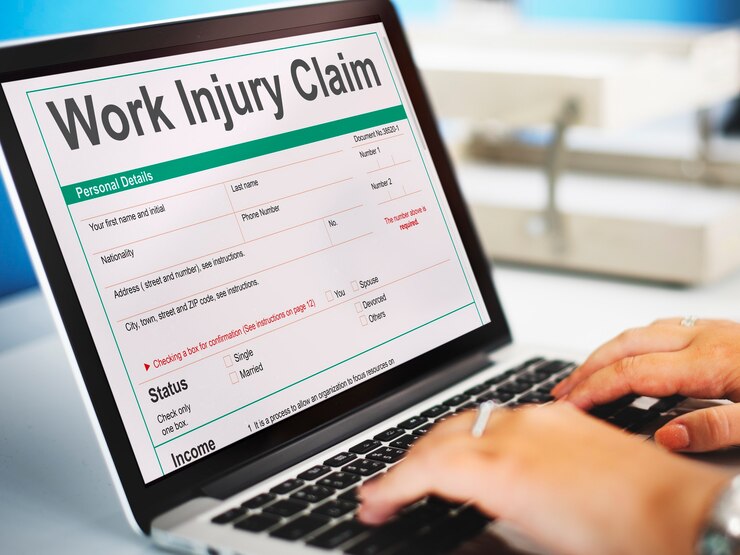
Does an employee who gets injured, falls ill, or dies get to receive compensation benefits? Yes, if his injury, illness, or death is work-related.
Such benefits for workers’ compensation, popularly known as workers’ comp, are put in place to help employees cover a portion of their medical treatment, rehabilitation, and wages. Your workers compensation attorney can discuss this with you in more detail.
This blog aims to give you clarity on what workers’ comp covers.
What is Workers’ Comp?
Workers’ comp, to begin with, is a government-mandated system that gives financial benefits to workers who sustain injury or diseases related to their job.
The US government provides its own workers’ compensation insurance for federal employees. On the other hand, most states have their own workers’ compensation insurance program.
Most states require business owners to get compensation insurance coverage for their employees. Thus, employers purchase workers’ compensation insurance to cover the costs of these claims.
When a worker files compensation claims, his benefits are collected through the compensation system.
Mississippi Workers’ Compensation
The Workers’ Compensation Law protects the vast majority of employees from Mississippi.
Let’s take a look at some provisions.
- Workers’ compensation insurance coverage is required for all employers with more than five (5) full-time employees in the same business or establishment under any contract of hire, express or implied.
- The law does not provide coverage for domestic or farm labor or employees of non-profit fraternal, charitable, religious, or cultural organizations unless the employer chooses to do so voluntarily.
- Moreover, the Workers’ Compensation Law does not apply to federal employees or specific transportation and maritime jobs covered by federal compensation laws.
Features of the No-Fault System
With this no-fault system, liability will often not affect your benefits, regardless of who is at fault for an on-the-job injury or illness.
You can file a workers’ compensation claim regardless of the cause of your injury or illness under most circumstances. It means that your employer and his insurance carrier cannot deny your claim on the ground that you were negligent.
If you agree to receive compensation, you also waive your right to sue your employer for negligence or other damages. In return, the system will shield the business owner from any lawsuits related to the incident.
What are Your Compensation Benefits As a Worker?
Knowing your benefits is of utmost importance to get compensated for work-related injury and illness. So, what does workers’ comp cover?
Here are some excerpts from the 2019 Mississippi Workers’ Compensation Claims Guide.
-
Money owed to you while you are unable to work
All workers’ compensation benefits are based on the claimant’s average weekly wage. The daily rate of compensation is the weekly compensation rate divided by five. That means that a claimant gets the exact compensation amount if paid five, six, or seven days.
-
Choosing your doctor
The claimant’s choice of physician is limited to an area reasonably convenient to the injury or the claimant’s residence.
-
Medical care for your work injury
The employer must furnish the claimant with all necessary and reasonable medical services, supplies, and other attendance or treatment, such as the nature of the injury and the process of recovery required. Under the Mississippi Workers’ Compensation Act, medical benefits are unlimited and have no time limitations unless a statute of limitations proves applicable.
The claimant’s choice of physician is limited to an area reasonably convenient to the injury or the claimant’s residence.
The employer/carrier controls the vendor to be used for durable medical equipment. However, the selection of a pharmacy vendor is the claimant’s prerogative.
The treating or prescribing physician selects the necessary diagnostic testing facilities
-
Reimbursement for travel expenses due to your work injury
Travel expense to and from medical treatment is the responsibility of the employer/carrier, and there is no minimum distance to travel before the obligation to pay accrues.
-
Vocational Rehabilitation
Although this component is not mandatory, the Mississippi Workers’ Compensation Commission aims to assist claimants in their rehabilitation or restoration to health and vocational opportunity.
Suppose a claimant is enrolled in a vocational rehabilitation program. In that case, the employer/carrier should pay $25.00 a week for a maximum of fifty-two weeks when a claimant is undergoing an approved vocational rehabilitation program.
-
Disability Benefits
Disability benefits are therefore conditional, based on a medical opinion to the effect that the injury prohibits or impairs the claimant from working on either a temporary or permanent basis.
Temporary Total Disability
Temporary Total Disability benefits are generally payable when the employee is entirely unable to work because of injury, but the disability is not expected to be permanent. Installments of compensation are payable every fourteen days (although weekly payments are permissible).
The compensation rate is 2/3 the Average Weekly Wage subject to the statutory minimum and maximum in effect on the date of injury.
Temporary Partial Disability
Temporary Partial Disability benefits are payable when the employee sustains a partial disability before maximum medical recovery. It is usually found in those cases where the claimant returns to work with temporary work restrictions and, due to the injury, cannot earn the same wages he was earning before the injury.
The benefit is calculated by taking the pre-injury average weekly wage minus the wage-earning capacity after the injury times 66 2/3%. This benefit is subject to the same maximum limitations as to temporary total disability benefits, but there is no applicable minimum weekly benefit.
Permanent Partial Disability
Permanent Partial Disability benefits are payable after the claimant attains maximum medical improvement and is left with a disability that is less than total but permanent.
Scheduled Member Benefits
These are temporary disability benefits and begin once a claimant is at maximum medical improvement. The value of a scheduled member’s permanent disability is based on several factors taken together, including the claimant’s age, education, training, work experience, transferable work skills, and post-injury work history and earnings.
Moreover, the permanent partial disability benefits for non-scheduled injuries such as those involving the back, head, or heart are calculated differently. Still, they have some commonalities with what the scheduled member receives. For instance, a claimant who sustains severe head or facial disfigurement is entitled to a payment not to exceed $5,000.
Permanent Total Disability
Permanent Total Disability (PTD) benefits are not payable for life but are subject to the same 450-week limitation, weekly minimums and maximums, and overall dollar maximum set by the Mississippi Workers’ Compensation Commission.
PTD is payable when an employee is unable, because of the injury, to return to any reasonable employment for which he is trained by education, training, or experience.
-
Death Benefits
Death benefits are payable only for a maximum of 450 weeks and are subject to the same minimum and maximum weekly compensation rates as disability cases.
An immediate lump sum payment of one thousand dollars ($1,000.00) is owed to the surviving spouse.
Reasonable funeral expenses, not to exceed five thousand dollars ($5,000.00), are owed on behalf of the decedent.
Weekly benefits to the surviving spouse and dependents must not exceed 66 2/3% of the decedent’s average weekly wage. Moreover, the benefits for each child stop at age 18 (unless he/she remains a full-time student or is incapable of self-support because of a mental or physical disability). Once the benefits for a child stop, it is necessary to recalculate each benefit.
Fair Resolution of Your Compensation Claim
Your workers’ compensation claims can be resolved fairly. All settlements are subject to approval by the Commission, and the employer/carrier must retain the services of a licensed Mississippi attorney to prepare the necessary paperwork and present the settlement to the Commission.
In conclusion, getting worker’s comp for yourself need not fall on your shoulders. Win your case by consulting a workers’ comp lawyer who can provide you with the legal assistance and representation you deserve.






Connect with Us